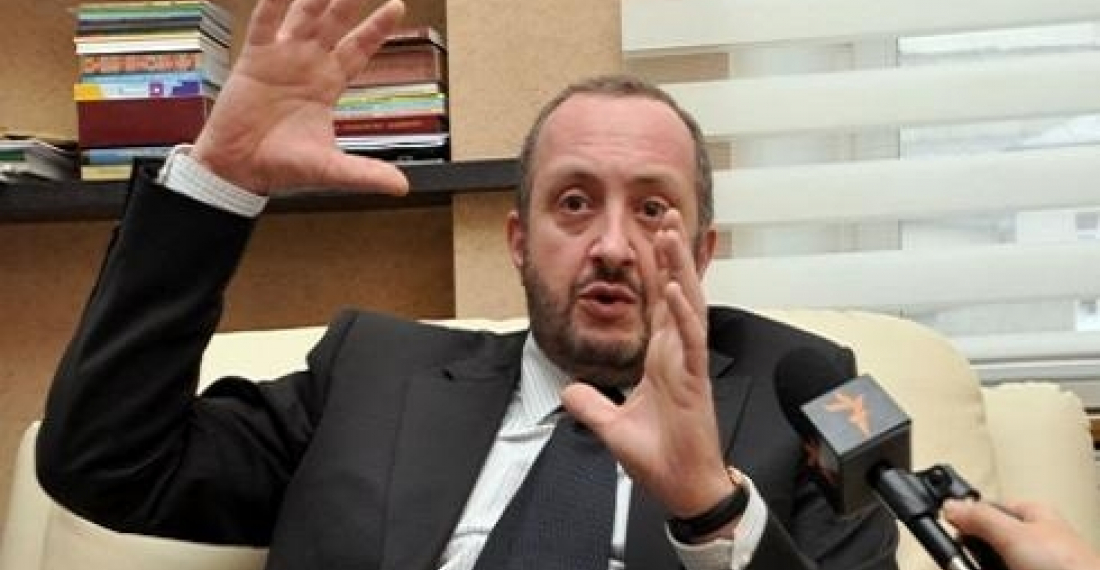The Georgian Dream Coalition led by Prime Minister Bidhzina Ivanishvili has decided to nominate the Deputy Prime Minister and Minister of Education, Giorgi Margvelashvili as its candidate for the October Presidential elections.
Announcing the decision Ivanishvili told journalists that the choice was not only the best but "ideal".
The Georgian web portal civil.ge reports that the Prime Minister highly praised Margvelashvili's personal attributes
"He is very creative and he is unique in crisis situations; he is experienced in management; he is experienced in politics too; he is a good analyst, good expert; I don't know what else to list," Ivanishvili said, adding that Margvelashvili "is also a good team-player".
"Whenever I come across difficulties I always call Giorgi and ask him [for advice]; I have two or three such persons with whom I can sit down and talk about any issues and any problem," he added. "I am happy that I know such a person and I think that especially at this stage, when our democracy is still fragile... and our team has an ambition to establish a genuine democracy, such a president would be very much acceptable," Ivanishvili said. "We should prove to the entire world in the shortest period of time that Georgians are Europeans and we deserve to become EU member state as soon as possible... and such persons like [Margvelashvili] and such president give us reason to have such an ambition."
Commonspace.eu political editor said in a comment:
"The announcement of the candidacy of Giorgi Margvelashvili as the Georgian Dream's candidate for the Presidency of Georgia was hardly a surprise since his name, together with that of a number of others, had been mentioned for some time. Regardless of the personal attributes of Margvelashvili the process of his selection however raises a number of questions.
The first is the somewhat clumsy way that the Georgian Dream coalition had chosen to select its candidate. This left the impression of internal intrigue and of Prime Minister Ivanishvili running roughshod over the opinion of his coalition. Even if not true, the lack of transparency and of public consultation in the selection process leaves much to be desired.
The second is the issue of the profile of the candidates that were being considered. Georgia is still getting used to the idea that Executive Power will not be with the President but with the Prime Minister and his government. In this case what is needed is a person who can be a unifying symbol of the country, who can rally the country and its politicians during time of crisis, and who otherwise keeps out of the way of the government. The example comes to mind of the role played by the veteran Presidents of Italy and Greece in recent years as their countries struggled with political and economic crisis. Italy's Georgio Napolitano is 89 years old whilst Karolos Papoulias of Greece is 84 years old. Both were active politicians but were elected with strong cross-party support.
All this means that 42 year old Margvelashvili is going to have to work very hard between now and October to convince the Georgian people that he is the right choice. Despite the fact that he has the support of the Georgian Dream coalition which is still basking in its victory of the October 2012 Parliamentary elections, and of Ivanishvili himself, who continues to score very high popularity ratings with the Georgian public Margvelashvili's election come October is not yet a done deal, particularly if another candidate emerges who can strike a chord with the Georgian electorate.
Another messy election is not what Georgia needs at the moment, and one has to ask therefore if this process could have been done differently and better."
source: commonspace.eu
photo: Giorgi Margvelashvili, the Georgian Dream candidate for next October's Presidential elections. (Picture courtesy of Radio Free Europe, radio Liberty.







